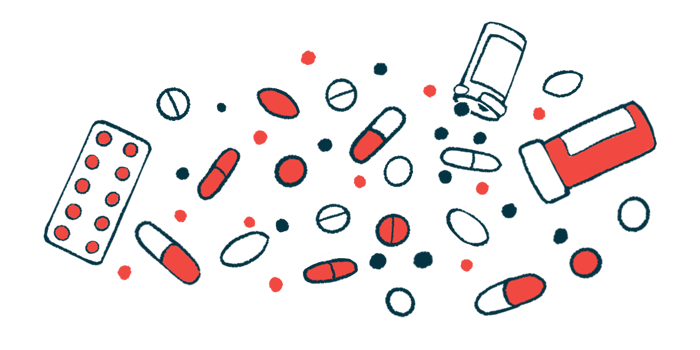Even with past treatment, Livdelzi works on primary biliary cholangitis
ASSURE assessed long-term outcomes in patients who completed earlier trials
Written by |

The efficacy of Livdelzi (seladelpar) at treating primary biliary cholangitis (PBC) is similar irrespective of whether patients previously received other medications, according to new analyses of clinical trial data.
Gilead Sciences, which markets Livdelzi after acquiring Cymabay Therapeutics, the therapy’s original developer, presented the new data at the European Association for the Study of the Liver (EASL) Congress 2025 last week in Amsterdam, and virtually.
“These new data presented at EASL further reinforce [Livdelzi’s] potential as a meaningful treatment option for people living with PBC,” Dietmar Berger, MD, PhD, Gilead’s chief medical officer, said in a company press release. Berger said the findings “strengthen the evidence supporting Livdelzi’s efficacy and tolerability across a broad population of patients, including those seeking alternatives to current therapies.”
An autoimmune disease, PBC is marked by chronic cholangitis, or inflammation in the bile ducts, which are the tubes that carry the digestive fluid bile from the liver to the intestines. Bile duct inflammation causes bile flow to stall, which sets the stage for liver damage, and causes bile to leak into the bloodstream, resulting in symptoms like itching, called pruritus.
Livdelzi, which is sold as Lyvdelzi in Europe, is a daily oral therapy approved in the U.S. and Europe for adults with PBC that isn’t adequately controlled with the first-line PBC treatment ursodeoxycholic acid, which is sold in the U.S. as Urso and Actigall, and as generics.
The second-line therapy is designed to reduce liver damage and ease symptoms by activating PPAR-delta, a protein that helps control bile production, inflammation, and scarring in the liver. Applications to approve Livdelzi are under review in Canada and Australia.
Results of ASSURE study
The new analysis was based on interim data from ASSURE (NCT03301506), an ongoing Phase 3 trial assessing long-term outcomes of Livdelzi treatment in PBC patients who completed earlier trials.
The data concerned more than 100 patients who’d participated in a placebo-controlled Phase 3 study called RESPONSE (NCT04620733) before entering ASSURE and had received Livdelzi for 18 months across both trials.
Most (87) hadn’t been on other treatments, but 15 had been treated with Ocaliva (obeticholic acid) or fibrates. Ocaliva was pulled from the European Union market and denied full approval in the U.S. last year, while fibrates are sometimes used off-label for PBC.
The researchers compared how many patients who had or hadn’t received previous treatments achieved a composite biochemical response, defined as blood ALP levels decreasing by at least 15% to below 1.67 times the upper limit of normal and a normalization of blood bilirubin levels. ALP and bilirubin are markers of liver damage. Results showed 60% of previously treated patients achieved the biochemical endpoint, as did 62% of previously untreated patients.
According to Gilead, the responses were comparable with a subset of patients who received six months of Livdelzi in ASSURE after being on a placebo in RESPONSE (64% of treated patients vs. 78% of untreated patients). Safety data also were comparable between the groups, with no serious side effects documented in either group.
“We are particularly encouraged by the sustained biochemical response seen with Livdelzi, even among those who previously received fibrates or [Ocaliva],” Berger said.
Itch improvements
Gilead also presented RESPONSE data from EASL regarding changes in the Pruritus Numeric Rating Scale (NRS), a standardized measure that asks patients to rate their itch on a scale of 0 to 10, with 10 being the worst.
The analysis included the 72 participants with moderate to severe pruritus (NRS score of 4 or higher) at the trial’s start. Data from other clinical measures, as well as interviews, suggested a score drop of at least 3 points in NRS represents moderate improvement in itching severity and is clinically meaningful. This means the previous 3.2-point drop with Livdelzi wasn’t just statistically greater than that observed for those on the placebo (1.7-point reduction), but also clinically meaningful.
Livdelzi “is uniquely positioned as [a] once-daily oral treatment that has statistically significant outcomes for both the underlying disease and the burdensome symptom of pruritus in people with PBC,” said Alejandra Maria Villamil, MD, chief of the autoimmune liver diseases unit at Hospital Italiano de Buenos Aires. “The demonstrated improvement in pruritus, combined with its established safety and efficacy profile, reinforces [Livdelzi] as an on-label treatment option for people with PBC.”
During the congress and in collaboration with the PBC Foundation and Friends of the PBC Foundation, Gilead launched a new initiative called All the Feelings with PBC, which seeks to highlight the experiences of people with the disease. As part of the initiative, Berlin-based artist Nour Khwies created paintings that reflect the experiences of four patients.







